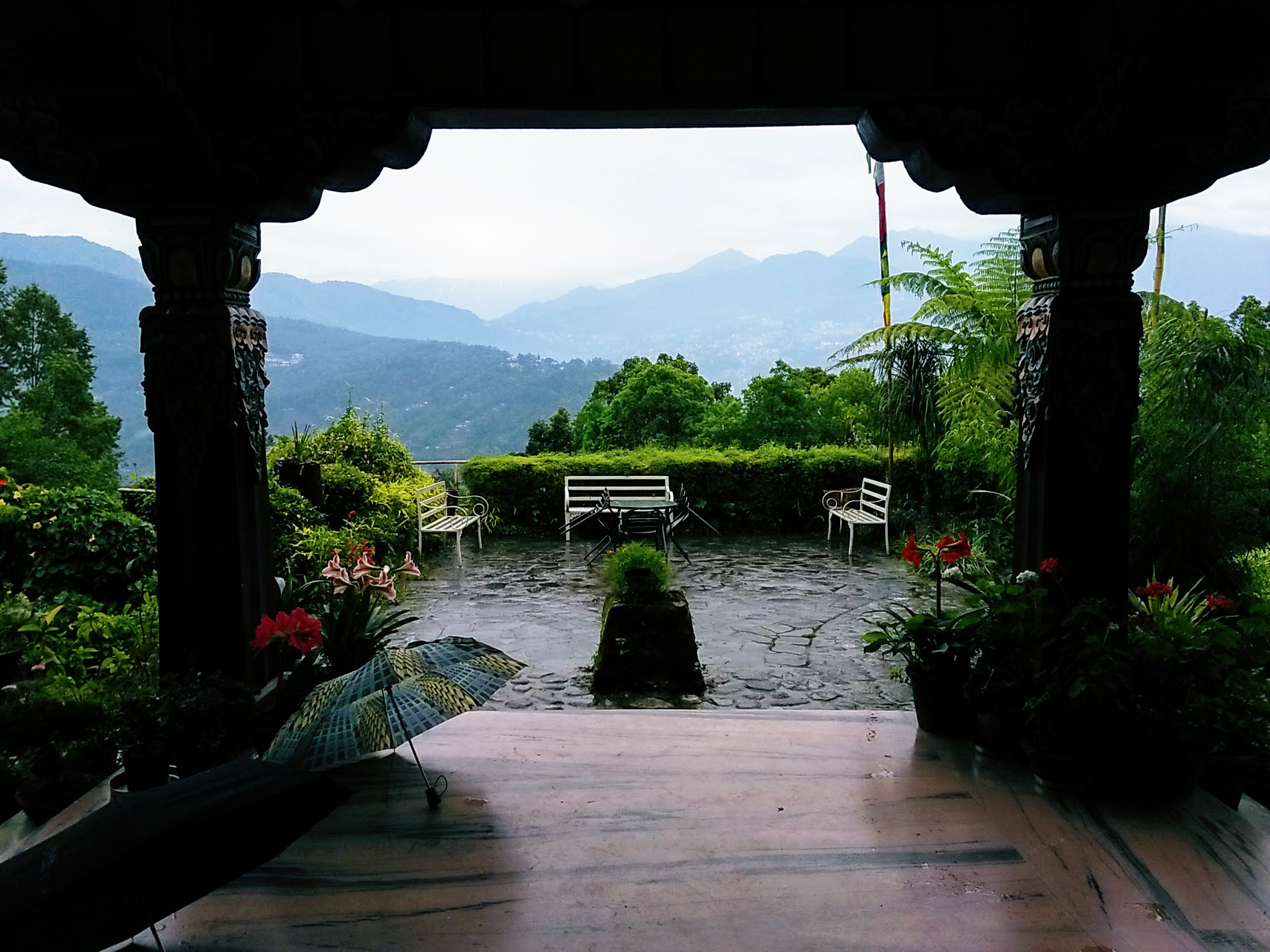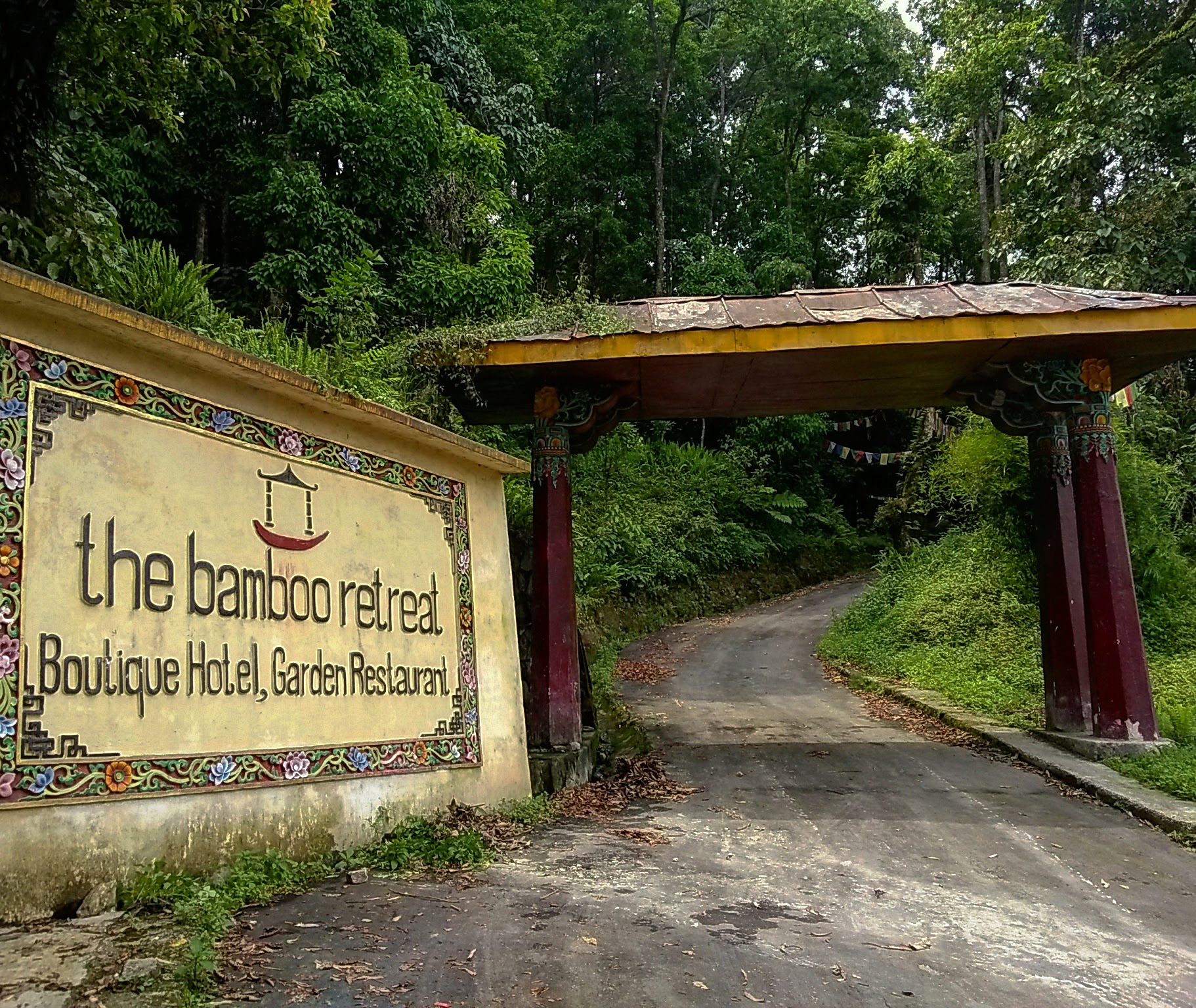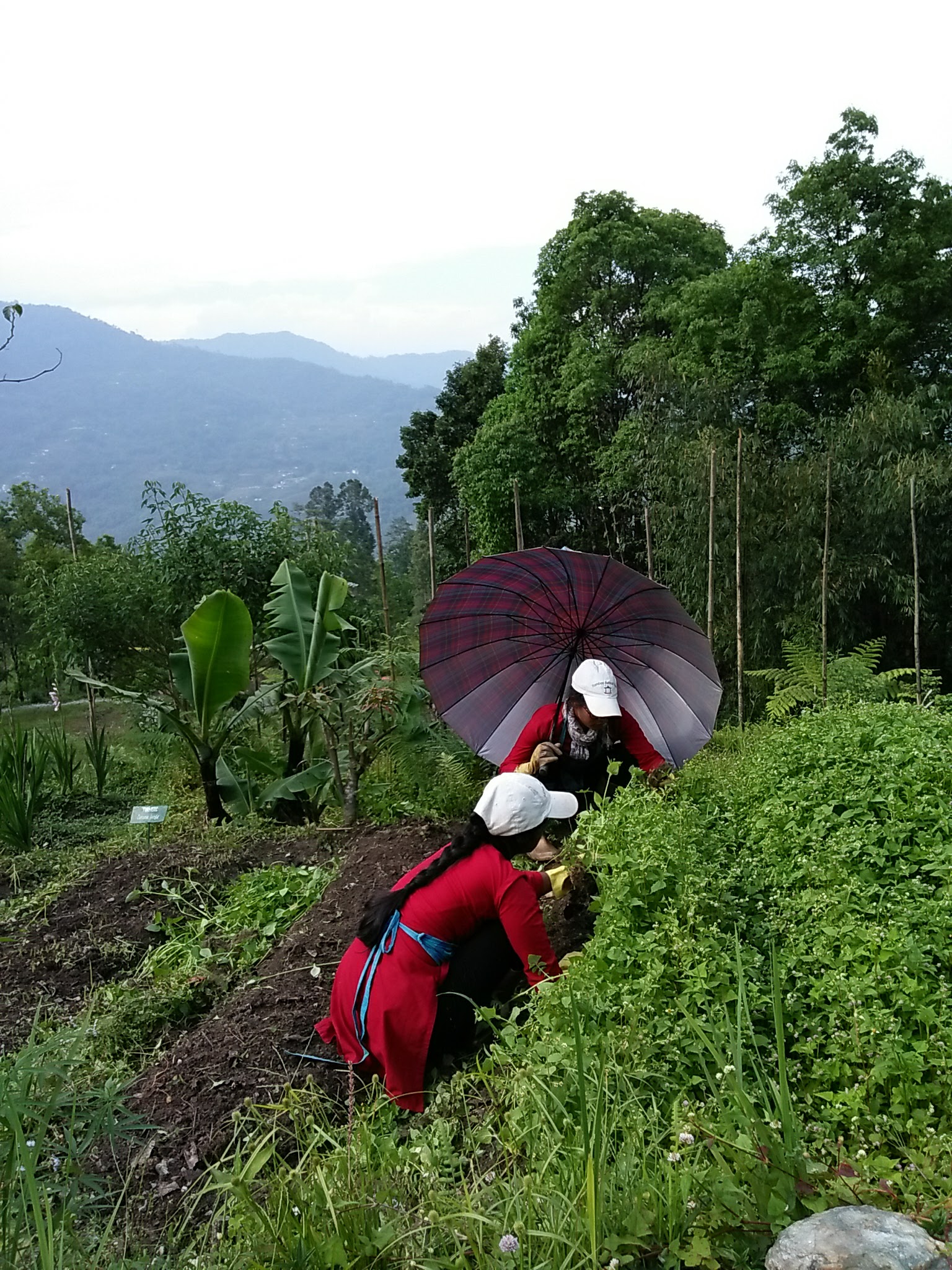Bamboo Shoots, Herbal Tea & a Love Story: This Organic Retreat in Sikkim Has It All!
A trip to Sikkim’s getaway with sprawling gardens, permaculture and a homely countenance!

Almost 20 years ago, when a young Swiss student made her way to the Tibetan Buddhism Centre in San Francisco, little did she know that her life was going to be altered forever. Helen Kamph, then in her mid-twenties, had already spent a year volunteering at SEMCOL in Ladakh while falling in love with India and its many mysteries. Naturally, when she met Topgay Tapaka, a young Sikkimese man at the Centre, they hit it off instantly.
The love story that transpired sustains a huge organic estate today where travellers can enjoy the magnificent views of the mighty Himalayas while also learning all about organic gardening.

“It’s been a long journey,” Helen reminisces. “From my very first visit to Sikkim I have been intrigued by people’s knowledge of the land and their simple lifestyle. I think modern society could benefit a lot by re-introducing some of that simplicity and lifestyle that is very much in tune with nature.”
When Helen and Topgay came back as a married couple to make Sikkim home, they set up base in Topgay’s native village, Rumtek. Barely an hour’s drive from Gangtok, the state capital, Rumtek has the perfect makings of an idyllic refuge in the mountains. About 3 km before the famous Rumtek monastery, the road curiously turns uphill, opening up to a 3-acre organic garden.
As I made my first uphill climb to the foot of the estate called The Bamboo Retreat, the drudgery of having to carry my hefty backpack soon disappeared – I was greeted by a sprawling garden filled with flowers in an array of bright, joyous shades and an overtly enthusiastic staff.
This would be my abode for the next few weeks while I got my bearings about permaculture and other organic gardening techniques.

Over extended chat and chai sessions with Norbu and Tara, locals who have been tending to the garden with Helen’s help for years now, I learnt that the organic garden was Helen’s pet project, years before organic gardening became an ‘in’ thing in Sikkim. Growing up in the countryside, Helen had always had a penchant for big gardens. As a child, she helped her mother grow all sorts of herbs and vegetables and process them into healthy homemade foods, a practice that she brought with her to The Bamboo Retreat.
The estate uses its produce of flowers, fruits and vegetables, to sustain the hotel and the restaurant that boasts of a delicious traditional Sikkimese spread. Several plants like nettle, wild fern, mustard, and bamboo shoot, all come from the garden. As do the garlic, turmeric, ginger, lettuce, potatoes, and tree tomatoes. The recent additions of the strawberry and sweet lime plants have just begun to bear fruit!
You may also like: How The Teesta River In Sikkim Helped A Couple Cope With The Grief Of Losing Their Only Son
The star attraction from the garden, however, is the herbal tea section. Spread across almost a kilometre is an assemblage of pudina or mint, peppermint and stevia plants. While the mint and the peppermint add the unique flavour to the tea, stevia is the natural sweetener. A little more research into stevia, and I soon realized that the health food communities have been advocating its use as a sugar substitute for years owing to its no-calorie, natural origins. The herbal tea is also a favourite amongst the guests. A relaxing cup of this particular mix, not only gets you a good night’s sleep, it’s also known to help with relieving symptoms of gas and indigestion.
The tender leaves, tips, and buds are carefully selected and plucked and dried in the sun to be stored for future use and to be sold to curious city dwellers like me.

At a very young age, Helen had begun to realize the benefits of eating healthy and living in harmony with the land. “It is my deep conviction that working with the land is essential in order for human beings to stay rooted, grounded, in-tune and in balance. Instead of moving further and further away from agrarian societies, I think humanity would be much better off, much happier, if they would begin to re-connect with the earth through growing food, caring for animals, protecting and safeguarding domestic animals, vegetables, grain and fruit varieties.”
Over the next few weeks, as I watched Tara and Norbu adroitly weed, pluck and cultivate the estate, I realized much of what Helen meant. Weeding every 10 days or so was, as I learnt, the key to keeping up a garden; and weed, however pretty to look at or deep rooted, needed to be removed.
But then again, everything has its place in nature. The weeded plants and shrubs were integral to making the manure, or what veteran gardeners call ‘mulch’. These plants are added to cow dung, sprinkled with a generous helping of wriggling earthworms and left to decay for about a week. The resulting mixture is what provides nutrition to the plants for weeks to come. Over the ensuing days, I learnt to select and prune diseased and broken stems, making sure that the lower stems of shrubs were getting enough light to grow, soaked coriander seeds overnight and spread them carefully over the freshly prepared ground.
Next, I covered the whole area with tall branches and leaves, so that birds would not peck away at the newly planted seeds, and right about a week later we witnessed the seeds sprout tiny saplings.

The garden also produces its own supply of smudge-sticks, spice powders, grain varieties– all of which are housed in the eclectic souvenir shop within the estate itself. Additionally with the purpose of promoting eco-tourism and local culture, the estate regularly organizes workshops on bamboo handicrafts, carpet weaving, thanka paintings for inquisitive guests.
In another feat of generosity altogether, the proceeds from the souvenir shop and all such workshops go into safeguarding the future of Sikkim, one child at a time. Every year, the estate funds the education of one underprivileged child at the Human Development Foundation of Sikkim. The estate also regularly organizes workshops that impart skill training to the locals – one such workshop that The Bamboo Retreat staff takes pride in is a recent course in administering first aid with Travel Agents Association of Sikkim (TAAS) with a couple of Swiss volunteers.
You may also like: Sikkim Farmers Are Earning 8 Times More By Growing These Exotic Foods, Thanks To These Two Brothers.
Helen, who has spent almost 20 years in India now, is just as much Indian as any of us. She notes how Sikkim, beautiful and monumental, is much like her childhood home in the Alps. “I feel deeply connected to the Himalayas. It’s like I was meant to find home here. We first started Bamboo Retreat, because we wanted a confluence of cultures – the East and the West have many things that they can learn from each other.” Sipping her cup of morning tea, in the sprawling garden overlooking the valley she tells me that she wants travellers to find a taste of home in the hills.
I for one, certainly did!
(Written by Aishwarya Guha).
Like this story? Or have something to share? Write to us: [email protected], or connect with us on Facebook and Twitter.
NEW: Click here to get positive news on WhatsApp!
If you found our stories insightful, informative, or even just enjoyable, we invite you to consider making a voluntary payment to support the work we do at The Better India. Your contribution helps us continue producing quality content that educates, inspires, and drives positive change.
Choose one of the payment options below for your contribution-
By paying for the stories you value, you directly contribute to sustaining our efforts focused on making a difference in the world. Together, let’s ensure that impactful stories continue to be told and shared, enriching lives and communities alike.
Thank you for your support. Here are some frequently asked questions you might find helpful to know why you are contributing?


This story made me
-
97
-
121
-
89
-
167













